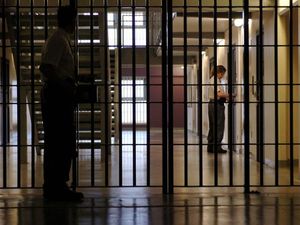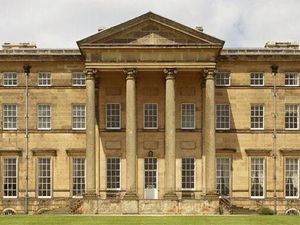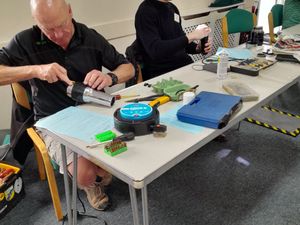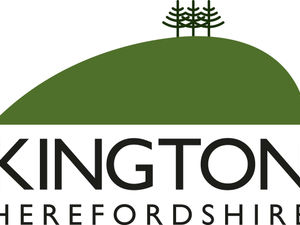Chancellor visits Telford tank factory ahead of defence spending announcement in her spring statement
The Chancellor met West Midlands servicemen and women at a tank factory in Telford as she sought to sell her spring statement to the nation.
Watch more of our videos on ShotsTV.com
and on Freeview 262 or Freely 565
Rachel Reeves today (Wednesday, March 26) sought to blame deteriorating public finances on a global rise in borrowing costs as she prepared to unveil her statement, with widespread cuts expected but a significant increase in spending in areas like defence.
She paid a visit to Rheinmetall BAE Systems Land (RBSL) in Telford, one of the companies that is likely to benefit from a pledge by the UK Government to increase its defence budget in light of global challenges like the ongoing crisis in Ukraine and conflict in the Middle East.
Speaking ahead of her statement today, the Chancellor said Britain had not been "immune" from global increases in the cost of government debt.
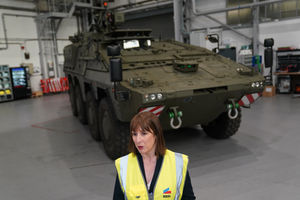
But she insisted she would meet her "non-negotiable" fiscal rules despite expectations that today’s official forecasts would show her "headroom" against those targets had vanished.
She said: "We can see that the world is changing, and part of that change is increases globally in the cost of government borrowing - and Britain has not been immune from those challenges.
"The OBR (Office for Budget Responsibility) will set out their verdicts on growth and on the public finances today, but we will continue to meet the fiscal rules I set out in the budget last year.
"Economic stability is non-negotiable, I will never play fast and loose with the public finances like the previous government did."
Economic uncertainty has seen the cost of government borrowing rise across the world, with a report published by the Organisation for Economic Cooperation and Development last week showing its members were now spending more on debt interest than defence.
In the UK, the yield on 10-year gilts - effectively the cost of government borrowing - has risen from four per cent a year ago to 4.7 per cent, with some blaming domestic factors as well as the global trend.
In October, the OBR had already forecast that the Government would spend £105 billion on debt interest payments, equivalent to around eight per cent of total spending, and recent rises in the cost of borrowing is likely to see that increase.
Economists have suggested that this, combined with the UK's stuttering growth, will mean the £9.9 billion of headroom Ms Reeves had against her fiscal rules in October would be eliminated, requiring today's statement to deliver either spending cuts, tax rises, or the abandonment of those rules.
Rheinmetall BAE Systems is based at Hadley Castle Works in Hadley, Telford, where there has been an industrial presence since the late 19th century. It produces UK based combat vehicles, playing a major role in the delivery of the British Army’s new Mechanised Infantry Vehicle (MIV) and other strategic combat vehicles programmes.
The pledge to increase defence spending is a boost to the company, which has its headquarters in Telford and employs a total of 700 there and at other sites in Gateshead, Bristol and Bovington.
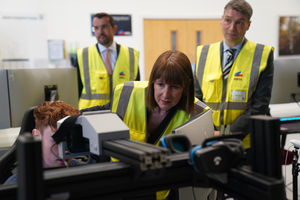
It was recently awarded a five-year, £110 million framework contract to provide post-design services (PDS) for in-service heavy armoured vehicles. The agreement covers technical support and safety management for platforms including the Challenger 2 and Challenger 3 main battle tanks, Warrior infantry vehicles, CVR(T) reconnaissance vehicles, and engineering vehicles such as Titan, Trojan, Terrier.
Ms Reeves said recently that UK companies and jobs will be prioritised under the Government’s plans for a significant increase in defence spending, with an aim to support “left behind” industrial towns and the economy at large.
Announced by Keir Starmer amid growing fears over Donald Trump’s commitment to European security, the Government will increase defence spending to 2.5 per cent of GDP by 2027 – worth an additional £6 billion a year.
With European leaders scrambling to strengthen their military capabilities, the Chancellor said the spending would also benefit jobs and growth in Britain as the state sought to spend more money with UK-based defence companies.
She said: “I am determined that as we spend that money on that defence and security, that we use it in a way that can also help stimulate the economy, and particularly to revive some parts of the country that do often feel like they’re left behind.”

